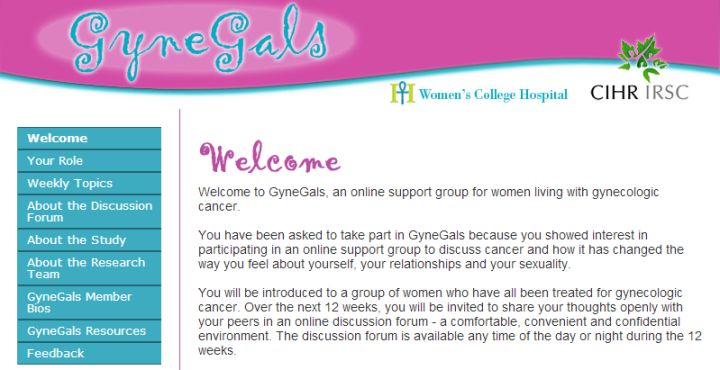CALGARY – Women recovering from gynecological cancers often have questions and concerns about the effects of treatment on their sexuality and body image, and can experience troubles in intimate relationships. A new online study is hoping to provide a safe place that offers answers from professionals and support from fellow survivors.

Researchers will be moderating a 12-week online forum as part of an Alberta Health Services study in Calgary and Edmonton. Twenty-six women have enrolled so far and researchers are looking for at least another 5o. Ontario and B.C. are also recruiting participants.
The study is open to women who’ve completed cancer treatment between three months to five years ago, and the researchers hope to start by fall 2015. A referral from your doctor is not required.

Get weekly health news
“The online support group provides a safe place where women can find answers to some of these questions and connect with others going through the same things,” said Dr. John Robinson, a psychologist with the Tom Baker Cancer Centre’s Department of Psychosocial & Rehabilitation Oncology.
The goal is to study the effectiveness of such online support groups, with a specific focus on sexual recovery.
“Women who live outside the larger centres and who may find it difficult to access specialized resources would likely find the online group beneficial,” said Dr. Ericka Wiebe, a co-investigator in the study and an oncologist at Edmonton’s Cross Cancer Institute.
“Even for women who live in the city, it may be more appealing to access a support group from the comfort and privacy of their own home.”
The support group will be accessible to participants 24/7 for 12 weeks via a password-protected website where women can choose whether to use their real name or a pseudonym (though they will not be anonymous to the researchers). A 90-minute chat session with two oncologists will also be part of the study.
Gynecological cancers include cervical, ovarian, uterine, vaginal and vulvar. Uterine and ovarian cancers are the most common cancers in women, after breast, lung and bowel cancer, according to AHS. Treatment may involve surgery, chemotherapy and radiation.
For more information on the Gynecological Cancer Study, phone 1-888-998-8148 or email Yvonne.Brandelli@albertahealthservices.ca.


Comments